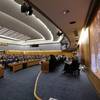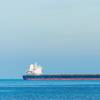MPHRP: Signposting for Mental Health Support
It is only after some time following traumatic events that mental health complications may surface. Assessment immediately after such events would most probably show signs of the common and perfectly normal after effects of extraordinary life events.
While research is scant, all indications are that seafarers respond to trauma as we all do. We are usually quite resilient. We recover over time. Only very few of us experience ongoing symptoms and need some form of mental health care. And even then, we are assured by mental health professionals, post trauma stress is treatable.
As persistent symptoms are key, the need for intervention would show itself only after four weeks, at the earliest.
The Maritime Piracy Humanitarian Response Programme offers ongoing support to piracy survivors. MPHRP is therefore well placed to identify the risk and the need for mental health interventions.
To alert MPHRP personnel of possible mental health complications after piracy, our consultants attended a Trauma Risk Management course presented by March on Stress. The course helps to signpost the possible risk of mental health symptoms that seafarers might experience after piracy, by measuring, over time, the prevalence of those symptoms. Awareness of symptoms that do not abate over 28 days, enables us to refer seafarers to our network of mental health professionals.
The course was aimed at MPHRP personnel and our Welfare Responder network. In attendance were Yasmin and Chester from SeafarerHelp (ISWAN) who receive calls from seafarers and families who want assistance, Dirk and Martin (Deutsche Seemannsmission) who are part of the global network of port chaplains (ICMA), and Hennie and Alexander from MPHRP, Gavin from March on Stress, and Roy and Chirag, also from MPHRP.
The group were unanimous: the course, they said, was invaluable for referring seafarers to the help they deserve in overcoming the trauma of piracy.













